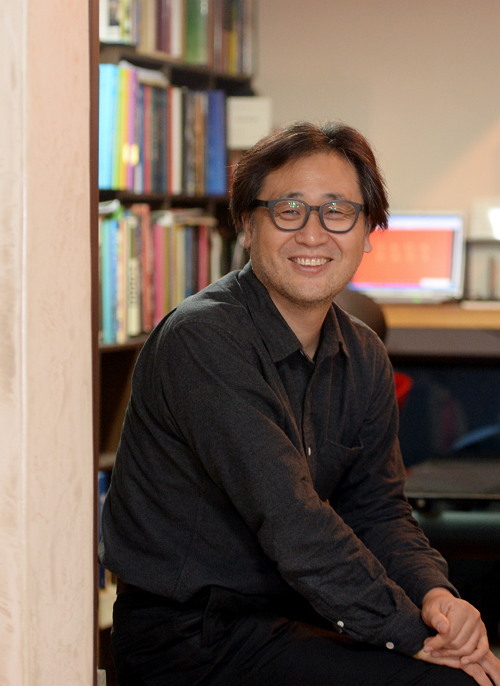A box-shaped apartment complex has been a dominant housing option for Koreans for decades.
The government has encouraged the development of such complexes, considering them as the most efficient type of housing to accommodate a large number of people in the country given its limited land.
The popularity of apartments has was the most profitable investment tool in Korea until the housing market bubble bust, hit by the global economic downturn in 2008.
Against this backdrop, with the demand for a better quality of life is increasing, a growing number of Koreans, regardless of age, are talking about the downsides of apartments.
Apartment residents have to be patient to deal with noise and other possible conflicts with neighbors. The standardized unit of Korean apartments has been criticized for depriving children of space to develop their creativity.
Architect Lee Ki-ok has spotted this growing demand for different housing options beyond apartments.
Lee also notes another issue associated with apartments ― loosening family ties, especially between children and father.
“Usually men don’t have their own private space to unwind in an apartment,’’ the president of Phillip Architect said in a recent interview with The Korea Herald.
 |
Architect Lee Ki-ok talks about a house project that connects young, emerging architects with residents aspiring to move out from apartments. (Ahn Hoon/The Korea Herald) |
Spaces of an apartment typically consist of a living room, a dining area, a master bedroom and children’s rooms.
“Fathers start spending time with their colleagues and friends golfing and drinking and come home late. They slowly grow apart from their family,” said Lee who also leads the Young Architect Association of the Korean Institute of Architects.
Taking a close look at the growing demand for different housing options beyond apartments, he and five other young architects in their 40s formed a project titled HOUSHOW in 2012 that designs dream houses.
The architects saw more than 80 applicants, mostly apartment dwellers, across the country. Architects selected their favorite cases, met the applicants in person and discussed design plans for their dream home.
As an end product, architects gave clients the floor plan, house model and perspective drawing of their dream house so that they can actually build the house in the future.
“It brought them a step closer to their dream of living in a house,” said Lee.
In one example, Lee’s client, a 40-year-old businessman with a wife and two children, asked him to build the house he designed.
The white scenic house in Gapyeong, Gyeonggi Province, is now the family’s weekend house.
“The house is designed to meet the unique lifestyle of the client family. It will also shape their future lifestyle,” Lee said.
Lee noted that the other goal of the project is to introduce the role of architects and reduce the gap between architects and the public.
“Not many people know that they can ask architects to design a house,” said Lee.
The house the architect designed cost almost half of what one needs to buy an apartment of the same size in Seoul. To buy a 112-square-meter apartment in the affluent district of Mok-dong where his client spends weekdays cost about 550 million won ($501,000). The design and construction of the house took just 290 million won.
“The life you build there is priceless. One of my old clients once told me that he began to come home early. He said he looked forward to the time he would spend in the house. He was creating his own culture in the house. It’s true that where we live defines us,” Lee said.
Lee hoped that the project would make more people picture their future living in a house and look for architects to realize that dream.
It would also help young, talented architects deprived of new building opportunities in the current construction industry slump to develop their careers.
The second round of HOUSHOW project kicked off with architects in their 30s. The team of seven architects, made their name known to the world introducing their previous works in an exhibition held in October in Seoul.
“Like you draw plans for your life, your house needs a plan that realizes the lifestyle you want,” said Lee.
By Lee Woo-young (
wylee@heraldcorp.com)








